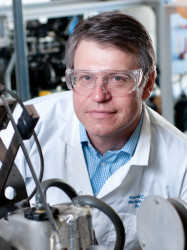BibTex format
@article{Joshi:2018:10.4271/2018-01-0880,
author = {Joshi, M and Gosala, D and Allen, C and Srinivasan, S and Ramesh, A and Vanvoorhis, M and Taylor, A and Vos, K and Shaver, G and McCarthy, J and Farrell, L and Koeberlein, ED},
doi = {10.4271/2018-01-0880},
journal = {SAE Technical Papers},
title = {Diesel Engine Cylinder Deactivation for Improved System Performance over Transient Real-World Drive Cycles},
url = {http://dx.doi.org/10.4271/2018-01-0880},
volume = {2018-April},
year = {2018}
}

